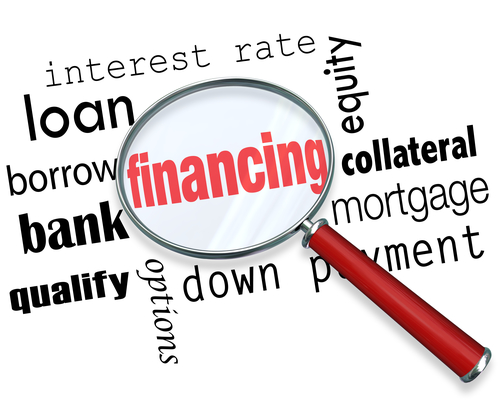Happy Halloween! On behalf of the entire Synergy Merchants team, we wish you all a…

Understanding The Risks Of Using Collateral For Business Loans
All business owners need money to grow their businesses. But, as most small business owners know, being approved for small business loans can be an incredibly difficult undertaking. Even if they are successfully approved for the money they need to grow their companies, entrepreneurs are often faced with a litany of hoops to jump through first. On Inc.com, Eric Markowitz provides the breakdown.
“Before you receive funds from a bank, a lender will scrutinize both you and your business to see if you’re a viable borrower,” he informs, “A bank will look at your company’s history, business credit, revenues, balance sheet, and your equity contributions. If you pass a credit check and you operate a healthy business, most banks will also require an additional, and tangible, guarantee that their loan will be repaid: collateral.”
What is collateral? Collateral provides a lender with security in the event you have any trouble paying back your loan. Usually, collateral comes in the form of property, such as your home. But, as Markowitz explains, “it can also be represented by your business’s inventory, cash savings or deposits, and equipment. In order to structure a loan that benefits both you and your business, you’ll need to make the right decision about what you offer up as collateral to the bank.”
Is it worth it to put collateral up in order to securing business financing? Well, it all depends on who you ask. For those who have lost their homes or other properties, the decision to use collateral to secure a loan is most likely seen as a poor one. As well, it also depends on just how comfortable you feel with putting your property at risk. Some see the act of using collateral as gambling because it means that there is something that you can potentially lose in an effort to get money.
What types of collateral can be used? As mentioned earlier, houses are most often used as collateral. However, as Markowitz informs, there are basically two types of collateral. They are assets that you own and assets that you have a loan against. “If you still have a loan on the asset, (e.g. a mortgage for a house) the bank will be able to recoup the loan by refinancing your loan from the institution you have the loan against, and claim the title,” he details.
What are the risks of using collateral? Again, you can lose your assets if you default on a loan. So, quite obviously, it is of vital importance that you’re always able to pay the bank’s minimum monthly payments. Markowitz suggests that you speak to a financial advisor before considering putting up any of your property as collateral. “A financial advisor will help you assess the risks involved, as well as the odds of the loan being successful,” he writes.
Can you get away with securing a loan without using collateral? There is always a possibility that collateral won’t be necessary in order for you to be approved for your business loan. However, there will certainly be a high price to pay. Markowitz notes that “a bank that does not require any collateral requirement will often charge extremely high interest rates. Be wary of predatory lending practices that could end up being expensive and harmful to your business.”
What is the alternative to securing funding for your business? At Synergy Merchants, we proudly offer Canadian business owners opportunities to secure merchant cash advances to help them grow their business. Because our program does not offer loans, but instead purchases a portion of your future credit card and debit card sales, no collateral is ever required!
For more information on our merchant cash advance program or to speak with one of our licensed funding specialists to get a free, no obligation quote, simply call Synergy Merchants at 1-877-718-2026 or email us at info@synergymerchants.com.



